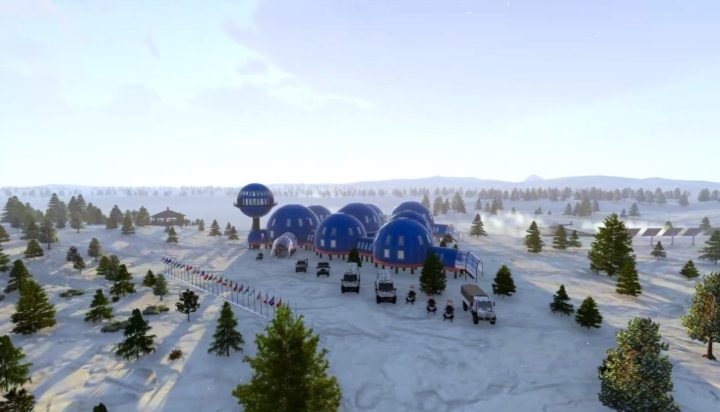A fully-autonomous diesel-free research station named Snowflake, which means Snezhinka in Russian, is to be built in the Arctic.
The station is an initiative of the Moscow Institute of Physics and Technology and will be located on the Yamal Peninsula in northwest Siberia – it will enable foreign partners to test and demonstrate environmentally-friendly energy technologies.
The station will be powered by wind and solar energy, supported by batteries and hydrogen infrastructure.
The central units of the 2,000-square metre station’s modular structure will be two laboratory modules with mini-labs and small-scale offices, areas for exhibits, a kitchen, medical room and a small café.

Two residential modules, a sports room, an electric vehicle charging station and a helipad for emergency situations are also integral parts of the station’s main structure.
The grand opening ceremony is planned for 2022 when the first international delegation will arrive at the station.





